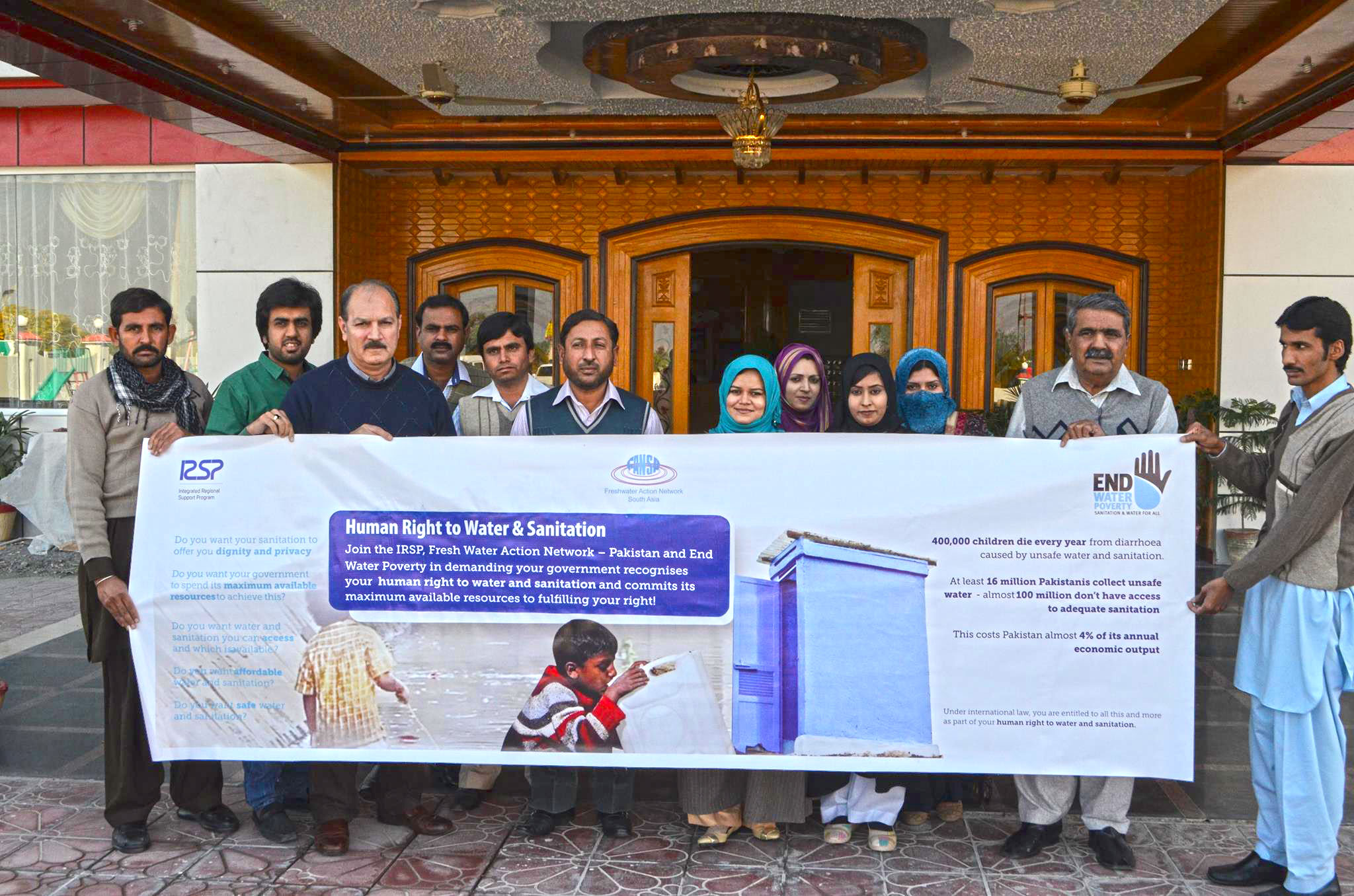A Sanitation Festival took place on November 19th, 2014 (11am-8pm) at Lok Virsa Museum Shakarparian, Islamabad to commemorate World Toilet Day. The event was a collaborative effort of the leading international and national development sector organisations working in the Water, Sanitation and Hygiene (WASH) sector in the country, with the key objective of creating mass awareness and highlighting the sanitation and hygiene sector as a priority in Pakistan.
This was the first ever public event planned to such a large scale, inviting people from all walks of life to be an important agent of change for the country and to join the global movement “Call to Action on Sanitation”, raising awareness on the importance of sanitation and hygiene, and helping keep families safe, happy and disease-free.
Pakistan is currently off track in meeting its sanitation Millennium Development Goals (MDGs) target – to ensure that 67 percent of its people have access to improved sanitation by 2015. We are missing the MDG sanitation target by nearly a decade, whereas some developing countries have achieved their target five years in advance. In Pakistan, just 48 percent of the population in the country has access to improved sanitation and more than 40 million people continue to defecate in the open. Pakistani children suffer 25 million cases of diarrhea annually, and approximately 395 children die every day due to poor sanitation and hygiene services in the country, with the second highest under five mortality rate in South Asia. Lack of adequate water and sanitation facilities is one of the contributing factors in the spread of the polio virus (and Pakistan is one of the last countries yet to eradicate polio). It also affects the physical and mental growth of children under five; unfortunately 44% of children are stunted in Pakistan.
Inadequate sanitation costs Pakistan 343.7 Billion PKR (about USD 5.7 Billion) annually, which is 3.9% of the country’s gross domestic product (GDP). Rural households spend around 20% of their monthly income ($10-20 per month) on medical costs, largely due to sanitation and water-borne diseases. The current government expenditure on sanitation and hygiene is very limited. The sanitation and hygiene situation in the country remains at a crisis point, and political momentum to tackle this crisis needs to be built in line with the Millennium Development Goals and in achieving universal coverage.
The sanitation festival was widely attended by educational institutions (school/college/university students), research institutions, civil society organisations, the private sector, government officials, media representatives, people with disabilities, womens groups, artists, musicians, entrepreneurs, community-based organisations, and community activists from different parts of the country.
Integrated Regional Support Programme (IRSP)/FANSA-Pakistan fully participated right from the planning stage to the prize distribution ceremony, and as well as attending the huge gathering in Islamabad, Fansa member organizations celebrated World Toilet Day in their respective areas.
In his World Toilet Day message, the prime minister of Pakistan praised the efforts and promised to support the campaign. He said:
“ We are committed to pursuing a healthy, sanitised and prosperous Pakistan, and firmly believe in keeping our environment free of all kinds of pollution. My government has put forward a comprehensive national development blueprint, Vision 2025,that also includes transformation of 90 percent of the population to ‘open defecation free’ status so that one of the biggest causes of environmental pollution is eliminated.
“We are aware that inadequate sanitation remains one of the country’s most pressing development issues affecting the lives of millions of people in the country. In this connection all provincial governments have been instructed to devise full-scale sanitation programs. Accordingly they are implementing public hygiene programs across the country. I am sure that these practical steps will not only bring about improvement in personal hygiene but will also be helpful in preventing and eradicating diseases.
“I extend my good wishes to Pakistan WASH Coalition for coming forward and engaging people from all walks of life exhorting them to keep themselves and their country clean. I am sure that the national hygiene drive will soon bear fruit and we will see palpable improvement in the national environment.”
Other End Water Poverty member organisations also mobilised on World Toilet Day. WaterAid released a report called “Child of Mine” and signed an open letter to Ban Ki-Moon, Secretary General of the United Nations, asking him to champion a goal dedicated to water and sanitation, to be realised by 2030.
If you have also participated in World Toilet Day this year and have stories and pictures, please share them with us! Email info@endwaterpoverty.org
Shah Nasir Khisro is executive director of Integrated Regional Support Programme (IRSP) and coordinator of FANSA-Pakistan.

